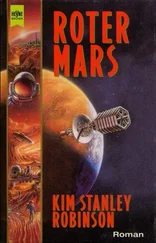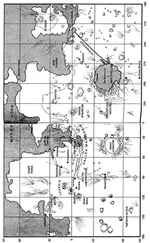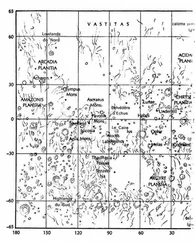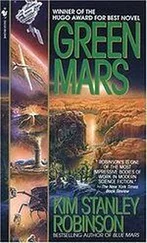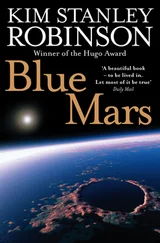Kim Robinson - Blue Mars
Здесь есть возможность читать онлайн «Kim Robinson - Blue Mars» — ознакомительный отрывок электронной книги совершенно бесплатно, а после прочтения отрывка купить полную версию. В некоторых случаях можно слушать аудио, скачать через торрент в формате fb2 и присутствует краткое содержание. Год выпуска: 1996, ISBN: 1996, Издательство: Spectra/Bantam Dell/Random House, Жанр: Космическая фантастика, на английском языке. Описание произведения, (предисловие) а так же отзывы посетителей доступны на портале библиотеки ЛибКат.
- Название:Blue Mars
- Автор:
- Издательство:Spectra/Bantam Dell/Random House
- Жанр:
- Год:1996
- ISBN:0-553-10144-7
- Рейтинг книги:3 / 5. Голосов: 1
-
Избранное:Добавить в избранное
- Отзывы:
-
Ваша оценка:
- 60
- 1
- 2
- 3
- 4
- 5
Blue Mars: краткое содержание, описание и аннотация
Предлагаем к чтению аннотацию, описание, краткое содержание или предисловие (зависит от того, что написал сам автор книги «Blue Mars»). Если вы не нашли необходимую информацию о книге — напишите в комментариях, мы постараемся отыскать её.
Green Mars
The Martian Chronicles
Dune
Piblishers Weekly st
Blue Mars — читать онлайн ознакомительный отрывок
Ниже представлен текст книги, разбитый по страницам. Система сохранения места последней прочитанной страницы, позволяет с удобством читать онлайн бесплатно книгу «Blue Mars», без необходимости каждый раз заново искать на чём Вы остановились. Поставьте закладку, и сможете в любой момент перейти на страницу, на которой закончили чтение.
Интервал:
Закладка:
Blue Mars
by Kim Stanley Robinson
PART ONE
Peacock Mountain
Mars is free now. We’re on our own. No one tells us what to do.
Ann stood at the front of the train as she said this.
But it’s so easy to backslide into old patterns of behavior. Break one hierarchy and another springs up to take its place. We will have to be on guard for that, because there will always be people trying to make another Earth. The areophany will have to be ceaseless, an eternal struggle. We will have to think harder than ever before what it means to be Martian.
Her listeners sat slumped in chairs, looking out the windows at the terrain flowing by. They were tired, their eyes were scoured. Red-eyed Reds. In the harsh dawn light everything looked new, the windswept land outside bare except for a khaki scree of lichen and scrub. They had kicked all Earthly power off Mars, it had been a long campaign, capped by a burst of furious action following the great flood on Terra; and they were tired.
We came from Earth to Mars, and in that passage there was a certain purification. Things were easier to see, there was a freedom of action that we had not had before. A chance to express the best part of ourselves. So we acted. We are making a better way to live.
This was the myth, they had all grown up with it. Now as Ann told it to them again, the young Martians stared through her. They had engineered the revolution, they had fought all over Mars, and pushed the Terran police into Burroughs; then they had drowned Burroughs, and chased the Tenons up to Sheffield, on Pavonis Mons. They still had to force the enemy out of Sheffield, up the space cable and back to Terra; there was work still to be done. But in the successful evacuation of Burroughs they had won a great victory, and some of the blank faces staring at Ann or out the window seemed to want a break, a moment for triumph. They were all exhausted.
Hiroko will help us, a young man said, breaking the silence of the train’s levitation over the land.
Ann shook her head. Hiroko is a green, she said, the original green.
Hiroko invented the areophany, the young native countered. That’s her first concern: Mars. She will help us, I know. I met her. She told me.
Except she’s dead, someone else said.
Another silence. The world flowed under them.
Finally a tall young woman stood up and walked down the aisle, and gave Ann a hug. The spell was broken; words were abandoned; they got to their feet and clustered in the open space at the front of the train, around Ann, and hugged her, or shook her hand — or simply touched her, Ann Clayborne, the one who had taught them to love Mars for itself, who had led them in the struggle for its independence from Earth. And though her bloodshot eyes were still fixed, gazing through them at the rocky battered expanse of the Tyrrhena massif, she was smiling. She hugged them back, she shook their hands, she reached up to touch their faces. It will be all right, she said. We will make Mars free. And they said yes, and congratulated each other. On to Sheffield, they said. Finish the job. Mars will show us how.
Except she’s not dead, the young man objected. I saw her last month in Arcadia. She’ll show up again. She’ll show up somewhere.
At a certain moment before dawnthe sky always glowed the same bands of pink as in the beginning, pale and clear in the east, rich and starry in the west. Ann watched for this moment as her companions drove them west, toward a mass of black land rearing into the sky — the Tharsis Bulge, punctuated by the broad cone of Pavonis Mons. As they rolled uphill from Noctis Labyrinthus they rose above most of the new atmosphere; the air pressure at the foot of Pavonis was only 180 millibars, and then as they drove up the eastern flank of the great shield volcano it dropped under 100 millibars, and continued to fall. Slowly they ascended above all visible foliage, crunching over dirty patches of wind-carved snow; then they ascended above even the snow, until there was nothing but rock, and the ceaseless thin cold winds of the jet stream. The bare land looked just as it had in the prehuman years, as if they were driving back up into the past.
It wasn’t so. But something fundamental in Ann Clayborne warmed at the sight of this ferric world, stone on rock in the perpetual wind, and as the Red cars rolled up the mountain all their occupants grew as rapt as Ann, the cabins falling silent as the sun cracked the distant horizon behind them.
Then the slope they ascended grew less steep, in a perfect sine curve, until they were on the flat land of the round summit plateau. Here they saw tent towns ringing the edge of the giant caldera, clustered in particular around the foot of the space elevator, some thirty kilometers to the south of them.
They stopped their cars. The silence in the cabins had shifted from reverent to grim. Ann stood at one upper-cabin window, looking south toward Sheffield, that child of the space elevator: built because of the elevator, smashed flat when the elevator fell, built again with the elevator’s replacement. This was the city she had come to destroy, as thoroughly as Rome had Carthage; for she meant to bring down the replacement cable too, just as they had the first one in 2061. When they did that, much of Sheffield would again be flattened. What remained would be located uselessly on the peak of a high volcano, above most of the atmosphere; as time passed the surviving structures would be abandoned and dismantled for salvage, leaving only the tent foundations, and perhaps, a weather station, and, eventually, the long sunny silence of a mountain summit. The salt was already in the ground.
A cheerful Tharsis Red named Irishka joined them in a small rover, and led them through the maze of warehouses and small tents surrounding the intersection of the equatorial piste with the one circling the rim. As they followed her she described for them the local situation. Most of Sheffield and the rest of the Pavonis rim settlements were already in the hands of the Martian revolutionaries. But the space elevator and the neighborhood surrounding its base complex were not, and there lay the difficulty. The revolutionary forces on Pavonis were mostly poorly equipped militias, and they did not necessarily share the same agenda. That they had succeeded as far as they had was due to many factors: surprise, the control of Martian space, several strategic victories, the support of the great majority of the Martian population, and the unwillingness of the United Nations Transitional Authority to fire on civilians, even when they were making mass demonstrations in the streets. As a result the UNTA security forces had retreated from all over Mars to regroup in Sheffield, and now most of them were in elevator cars, going up to Clarke, the ballast asteroid and space station at the top of the elevator; the rest were jammed into the neighborhood surrounding the elevator’s massive base complex, called the Socket. This district consisted of elevator support facilities, industrial warehouses, and the hostels, dormitories, and restaurants needed to house and feed the port’s workforce. “Those are coming in useful now,” Irishka said, “because even so they’re squeezed in like trash in a compactor, and if there hadn’t been food and shelter they would probably have tried a breakout. As it is, things are still tense, but at least they can live.”
It somewhat resembled the situation just resolved in Burroughs, Ann thought. Which had turned out fine. It only took someone willing to act and the thing would be done — UNTA evacuated to Earth, the cable brought down, Mars’s link to Earth truly broken. And any attempt to erect a new cable could be balked sometime in the ten years of orbital construction that it took to build one.
Читать дальшеИнтервал:
Закладка:
Похожие книги на «Blue Mars»
Представляем Вашему вниманию похожие книги на «Blue Mars» списком для выбора. Мы отобрали схожую по названию и смыслу литературу в надежде предоставить читателям больше вариантов отыскать новые, интересные, ещё непрочитанные произведения.
Обсуждение, отзывы о книге «Blue Mars» и просто собственные мнения читателей. Оставьте ваши комментарии, напишите, что Вы думаете о произведении, его смысле или главных героях. Укажите что конкретно понравилось, а что нет, и почему Вы так считаете.


